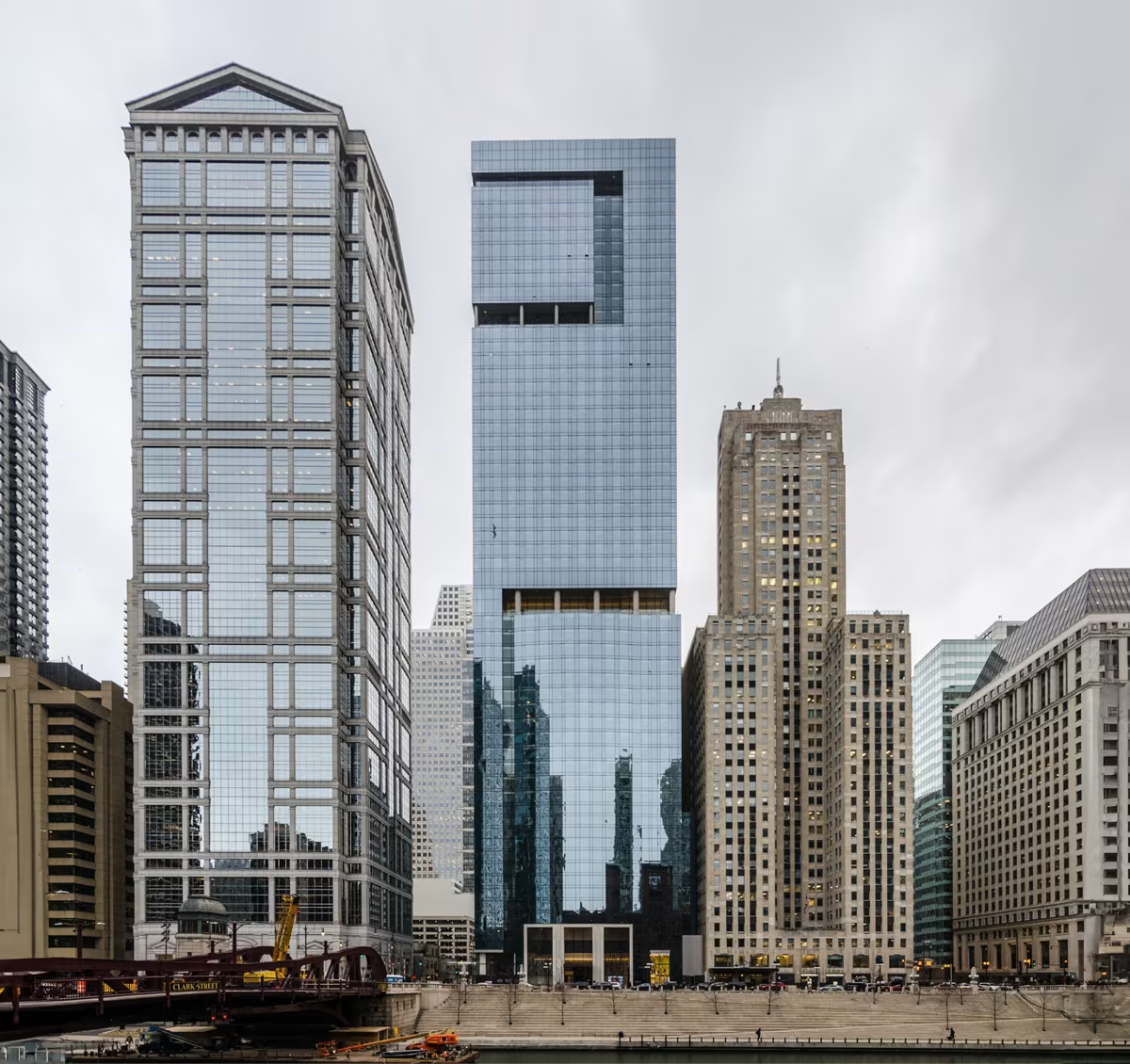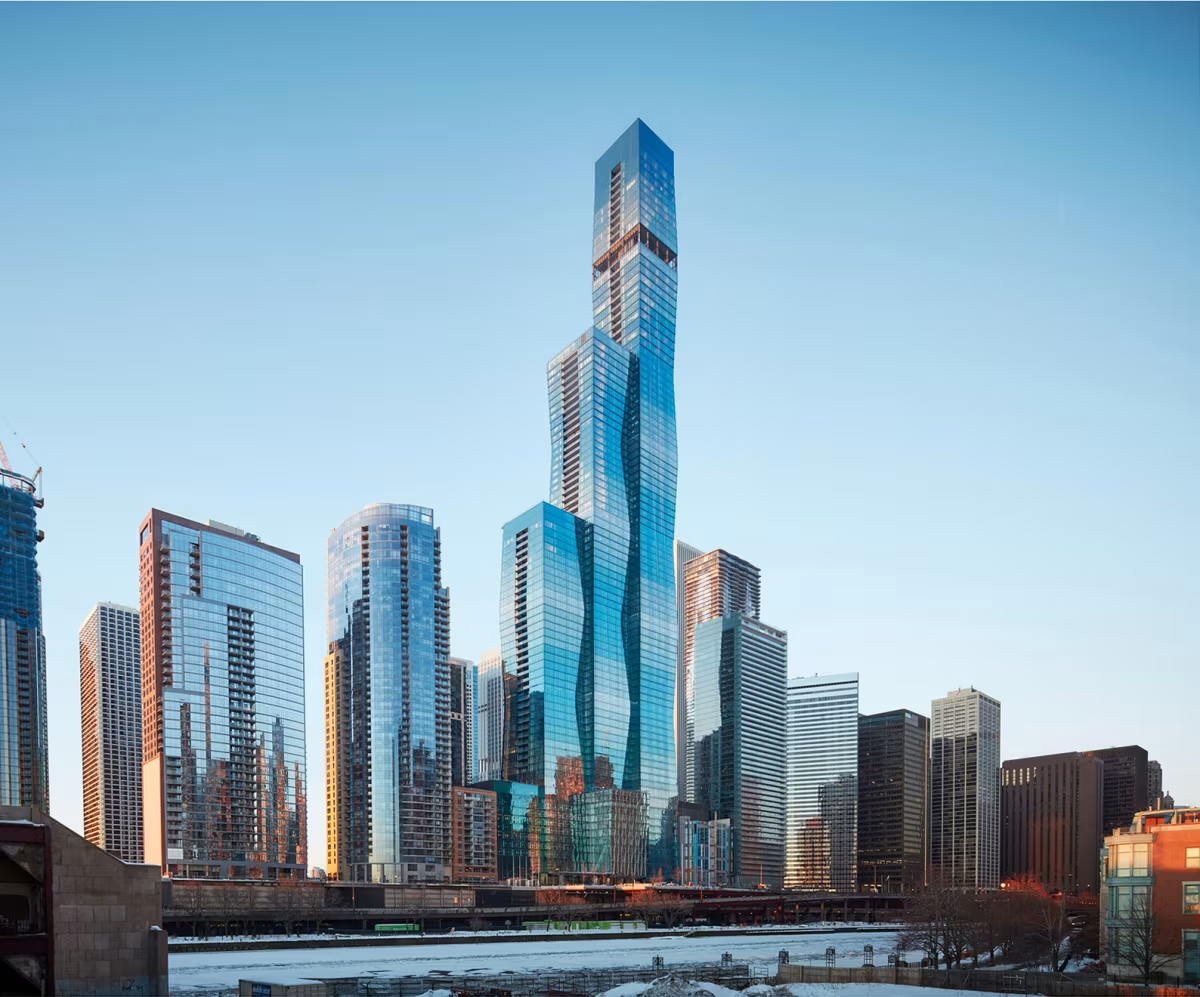OneEleven Building vs St. Regis Chicago


Comparing the OneEleven Building and the St. Regis Chicago is interesting because they both rise in Chicago, IL, yet they were conceived by two different design teams, Handel Architects LLP and Studio Gang Architects, and were completed at different points in time. They were finished more than 7 years apart.
This contrast within the same city allows us to see how different creative minds interpreted the evolving needs of Chicago across time.
Let's take a closer look!
Height & Size
The St. Regis Chicago is clearly the larger tower of the two, both in terms of height and number of floors. It rises to 1194ft (364m) with 101 floors above ground, while the OneEleven Building reaches 614ft (187m) with 58 floors above ground.
Of course, each project may have faced different briefs or regulatory constraints, which we don't really know about and could also explain the outcome.
Architectural Style
Both the OneEleven Building and the St. Regis Chicago were designed in line with the aesthetic conventions of the Contemporary style.
At the time, this style was at the height of its popularity. So both Handel Architects LLP and Studio Gang Architects followed what was in many ways expected of them, producing designs that fit comfortably within contemporary architectural norms, rather than breaking with convention.
Uses
Both the OneEleven Building and the St. Regis Chicago were designed to serve as residential towers, and that has remained their main use since their completion, serving similar roles in the urban fabric.
The St. Regis Chicago incorporates a 5-star hotel with 192 rooms. More information is available at the official website.
In terms of capacity, the OneEleven Building offers 504 apartments, while the St. Regis Chicago provides 393 units.
Both towers provide significant parking capacity, with OneEleven Building offering 470 spaces and the St. Regis Chicago offering 295.
Structure & Facade
Both the OneEleven Building and the St. Regis Chicago rely on a Frame structural system.
A frame structure uses a grid of columns and beams to carry the building's loads. This frees the walls from structural duties, allowing for flexible floor plans and larger windows.
They also employ the same type of facade, a Curtain Wall facade.
A curtain wall is a non-load-bearing facade hung from the structural frame. It is anchored to floor slabs and transfers only its own weight and wind loads, allowing for sleek, glassy exteriors.
| OneEleven Building | St. Regis Chicago | |
|---|---|---|
| Handel Architects LLP | Architect | Studio Gang Architects |
| 2012 | Design Ended | 2016 |
| 2013 | Construction Started | 2016 |
| 2014 | Year Completed | 2021 |
| Contemporary | Architectural Style | Contemporary |
| Residential | Current Use | Residential |
| 58 | Floors Above Ground | 101 |
| 187 m | Height (m) | 364 m |
| 87,329 m² | Usable Area (m²) | 131,400 m² |
| 504 | Residential Units | 393 |
| Frame | Structure Type | Frame |
| Reinforced Concrete | Vertical Structure Material | Reinforced Concrete |
| Reinforced Concrete | Horizontal Structure Material | Reinforced Concrete |
| No | Facade Structural? | No |
| Glass | Main Facade Material | Aluminum, Glass |
| Lend Lease | Main Contractor | James McHugh Construction Co. |
| Related Midwest | Developer | Magellan Development Group |
| KMDG | Landscape Architect | OLIN |
| Cosentini | MEP Engineer | DbHMS |
| Halvorson And Partners | Structural Engineer | Magnusson Klemencic Associates |
| Lerch Bates | Facade Consultant | Curtain Wall Design And Consulting And Lee Herzog Consulting |
| Kara Mann Design | Interior Designer | Gensler And HBA |
| IL | State | IL |
| Chicago | City | Chicago |
| 111 West Wacker Drive | Address | 363 East Wacker Drive |